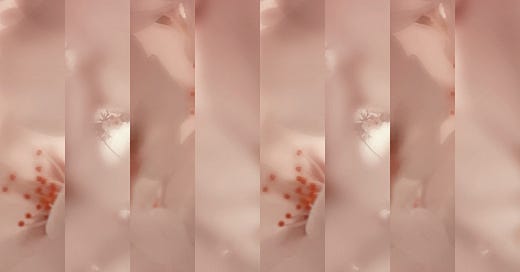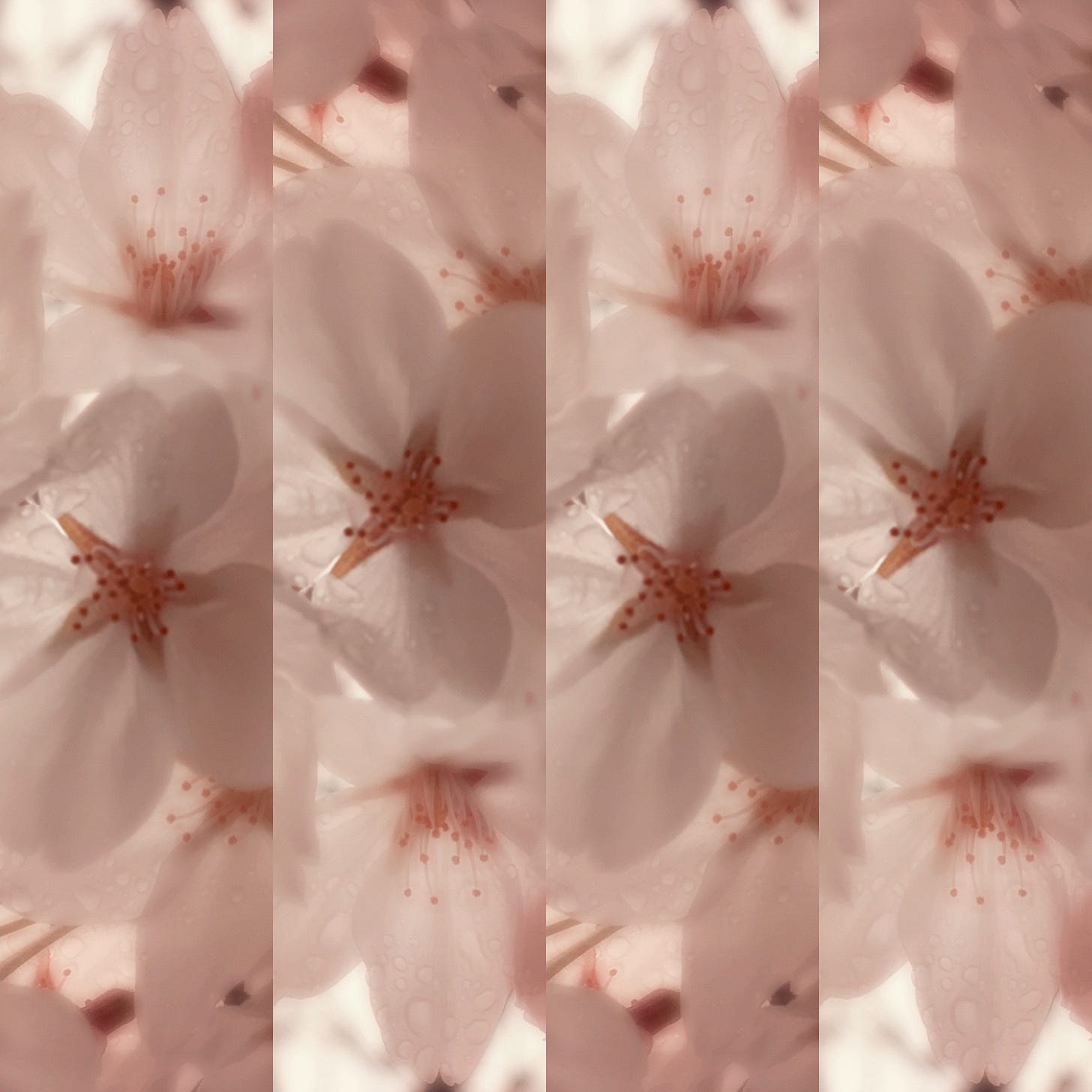This year the cherry blossoms have been late to arrive. Waiting, waiting, with expectation, they have finally appeared.
Matsuo Basho in Spring 1688:
So so many things
open in the memory
the blossoms again
And yet, with the clouds and the rain, the blossoms scatter too soon. Basho a few years and seasons later:
With an umbrella
I part and see my way through
the willow branches
More than a century passes, and with it, many seasons, and Kobayashi Issa pens:
Spring begins;
folly and again folly
returns
The deep appreciation of the seasons is one of the most distinctive features of Japanese culture. How to continue and adapt these traditions as the seasons become increasingly scrambled? Consider the March 2024 update from James Hansen, Makiko Sato and Pushker Kharecha, full of careful scientific prose, but with an unambiguous message: ‘we will bear a heavy burden if we stand silent or meek as the world continues on its present course.’
In my most recent conversation with Peter Chambers, we considered scale. That is a vital part of our contemporary predicament. Quantity becomes quality, or lack thereof, to be precise. At some point, a world without limits and friction stops being a world. Turning to Bruno Latour’s Down to Earth:
What is certain is that we can no longer tell ourselves the same old stories. Suspense prevails on all fronts.
Go backward? Relearn the old recipes? Take a new look at the age-old wisdom? Learn from the few cultures that have not yet been modernized? Yes, of course, but without lulling ourselves with illusions: for them, too, there is no precedent.
No human society, however wise, subtle, prudent, and cautious you may think it to be, has had to grapple with the reactions of the earth system to the actions of eight or nine billion humans. All the wisdom accumulated over ten thousand years, even if we were to succeed in rediscovering it, has never served more than a few hundred, a few thousand, a few million human beings on a relatively stable stage.
We understand nothing about the vacuity of contemporary politics if we do not appreciate the stunning extent to which the situation is unprecedented.
Reckoning with all of this, seeing in twilight, that is our challenge. In The Shock of the Anthropocene: The Earth, History and Us, Christophe Bonneuil presents it in this form:
The question in the twenty-first century will be how to inhabit the Earth less frightfully.
Almost a quarter of the way into this century, it is apparent our answers are failing. This is perhaps being overly generous, as what we are generally being presented with are rarely coherent enough to be deemed ‘answers’. One of Mike Davis’ final pieces pointed towards this:
Does hegemony require a grand design? In a world where a thousand gilded oligarchs, billionaire sheikhs, and Silicon deities rule the human future, we should not be surprised to discover that greed breeds reptilian minds.
Returning to cherry blossoms. People sitting under trees reflecting on the fleeting beauty of life is a poetic image to aspire to. The more banal reality is excessive consumption with nature reduced to a staging ground for social media. Still, for those who want to stop, to look, to feel, one can still find it all there. The beauty and sadness of the cycles and the seasons, the eternal truths we eternally forget and forever ignore.









